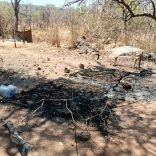Transcript : TotalEnergies SE, Q2 2025 Earnings Call, Jul 24, 2025
Mozambique faces losses due to lack of cost certification for gas projects, says CIP

in file CoM
The amount of the losses is not yet known, but the CIP points out that more than $ 7 billion has not been certified by the National Petroleum Institute in gas projects prior to 2015.
The Centre for Public Integrity of Mozambique (CIP) said on Monday (10.02) that Mozambique had lost significant revenue by failing to certify the costs of gas projects prior to 2015.
Companies periodically deliver a cost report which must be verified by the government. If the government fails to certify within the period defined by the concession contract, it is deemed to have accepted the costs as declared by the companies.
The CIP discovered the putative loss after the National Petroleum Institute (INP) released the audit of the recoverable costs of concession contracts in the Rovuma Basin from 2015 to 2017.
According to the INP, concessionaires declared almost US$2 billion, but CIP researcher Inocencia Mapisse says that information released by the INP proves that revenues for the period prior to 2015 were lost.
Mapisse mentions an amount of up to US$7.2 billion (almost €6.6 billion) as not being certified by the INP, but the exact amount of revenue lost still remains to be calculated.
“Government is assuming” losses
“We can conclude on the balance of recoverable costs until 2015 – we continue hitting the 2015 key, taking into account that the report submission deadline has expired. This confirms what we thought was a risk: losing revenue due to non-certification of cost compliance. This is now a certainty,” Mapisse explains. “This publication shows that the Government is assuming that it has not certified the costs until at least 2015.”
According to Mapisse, information from the sector regulator shows that the certification process started in 2015, and figures refer to 2015, 2016 and 2017, meaning that before that there was no cost certification.
“There was no cost certification of at least US$7.1 billion, if we do not consider 2015,” Mapisse concludes. “But, if we consider 2015, because the deadline has passed, it means that, yes, US$7.2 billion were not certified by the government.”
Robert Besseling, executive director of risk assessment at Exx Africa consultancy, says that several countries have created a specific development agency, with the participation of government, business and civil society, which is responsible for the comprehensive management of extractive industry.
A structure without political interference
This would be a structure ring-fenced from political influence and responsible for managing the collection of taxes and revenues in the sector, streamlining communication between those interested in projects and ensuring that investment generates returns for the communities who need it most.

“It would have to be a central organisation, without political interference, which would coordinate different initiatives. If that can be done, surely the World Bank and the African Development Bank would also be able to help define the structures.
That is what we find in several countries that try to invest the revenue collected from the extractive industry in local development,” Besseling says. “This is a crucial aspect to be built in the future. How it should be done depends on the individual country.”
CIP researcher Mapisse says that the so-called High Authority of the Extractive Industry, established four years ago but existing so far only on paper, could exercise this function in Mozambique.
“It is important that the High Authority of the Extractive Industry begins operating – as a way of sourcing truthful and reliable information. The main problem with the Authority is the fact that it would report to the Council of Ministers, which makes no sense.”
Civil society proposal
Mapisse says it is time for the body to be activated in Mozambique, but says its competences must change.
“The civil society proposal – that the institution should be accountable to the Assembly of the Republic – is the most viable one.”
From this point of view, the body “would be a kind of auditor of the people, not an auditor of the government all over again, because there is already a sector regulator, so the Authority would appear as a kind of counterbalance to the results presented by the government auditor and the National Petroleum Institute”.
DW Africa contacted the National Petroleum Institute, but received no response to its request for an interview.












Leave a Reply
Be the First to Comment!
You must be logged in to post a comment.
You must be logged in to post a comment.